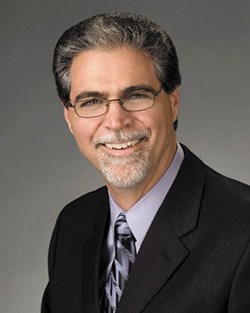Results-Oriented Team Development: Not Just Fun and Games
by September 1, 2014 12:00 am 69 views

Well, its team development time again.
You’ve likely seen these programs in action. A rubber chicken flies through the air; team members are tethered together attempting to navigate an obstacle course; toys, tent poles and blind folds are all in play. It can easily feel like a flashback to your school yard field days.
As a leader, it can be hard to quantify the value of such an event. They are often fun for employees and yield residual positives around the office through newly formed friendships and greater camaraderie, but those are likely not the primary results for which you forked over your money.
You wanted lasting change and enduring results, but instead you got a play date with a cargo-shorts-wearing hippie (not that there is anything wrong with that).
Why not just have a barbecue behind your building, or air March Madness on a projector screen in your parking lot? That’s a lot of fun, saves the road trip, keeps the hippie out of your world and you know in advance you’re just blowing money on fun rather than having your expectations of a powerful event go unmet.
But, you wouldn’t be reading this article if you weren’t wrestling with wanting more for your team. How are you supposed to know that your event will be more than a field day? Here are a few points to consider.
Every event should serve a clear purpose. Some events address broad corporate initiatives and work to close the gap between departments, drawing on diverse perspectives to enrich and sustain a collaborative work environment.
The light bulbs start going off when an employee in one department sheds light on something a director right under your nose couldn’t solve. A great event will help you get your people in the right place, under the right circumstances, engaged in the right conversations.
The smaller team development events should be more specific, but just as strategic. They can incorporate team and individual personality profiles and tread into the more crucial conversations on long-term planning, new objectives, team performance, group dynamics, building trust and minimizing conflict and personality clashes.
Going into these events, ask yourself and expect your facilitator to ask you the following types of questions:
What am I trying to accomplish and why?
What are the greatest challenges you and your team face right now?
What differences will you need to see to know your time and money were well-spent?
Am I ready and do I know what it takes to lead a high-performing team?
As you prepare for this year’s team development, know what you’re looking for and why. Ask good questions and expect to be asked penetrating questions. You should walk away from an initial assessment with your facilitator having learned something about yourself and the power of team dynamics.
Look for a facilitator with training in group and organizational dynamics, psychology and significant experience in team development. Require that they connect the dots between the team development initiatives and outcomes you are expecting and that your organization needs.
Let them know your budget and ask them to guide you in location selection and program/event design to ensure that the entire event works smoothly to achieve all of your objectives.
Tony Hawk is an executive coach and owner of Resources for Leading, an organizational development firm in Bentonville. More information is available at www.resourcesforleading.com or by calling 479-366-7692.
